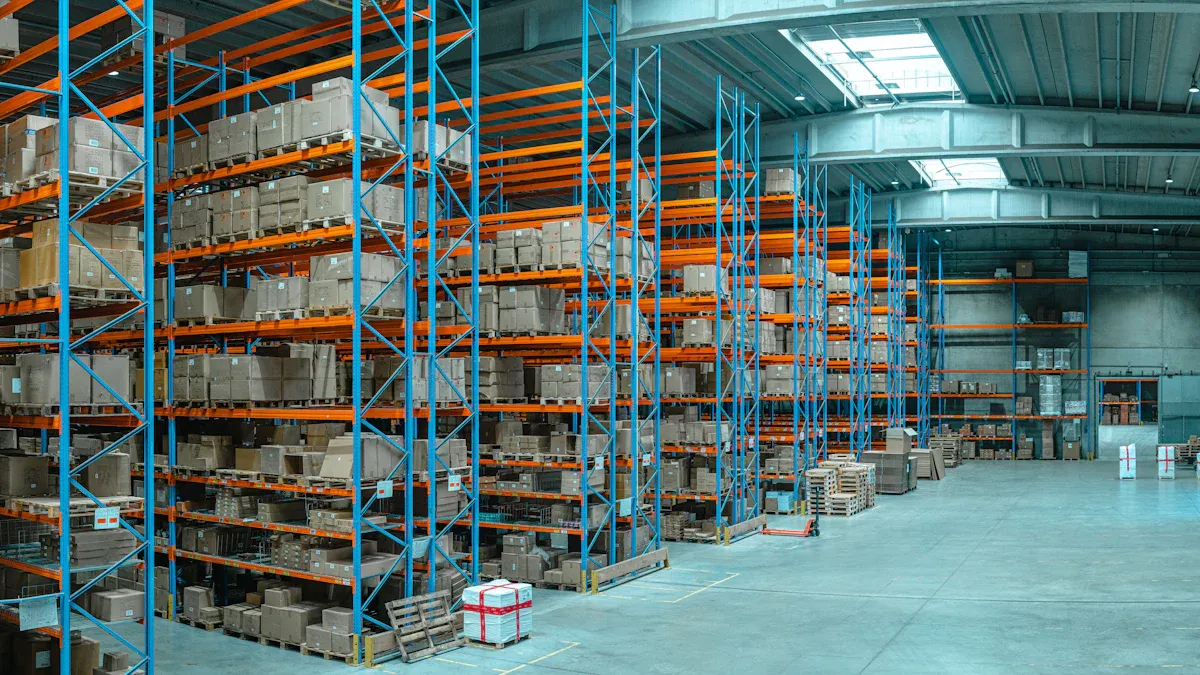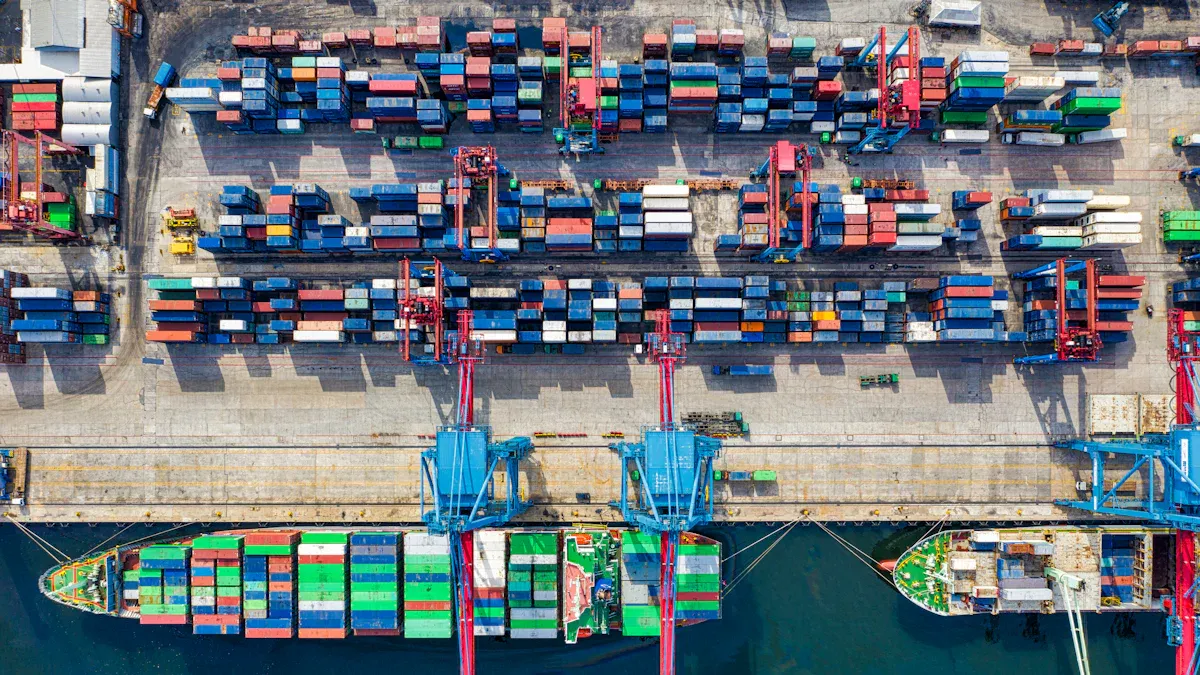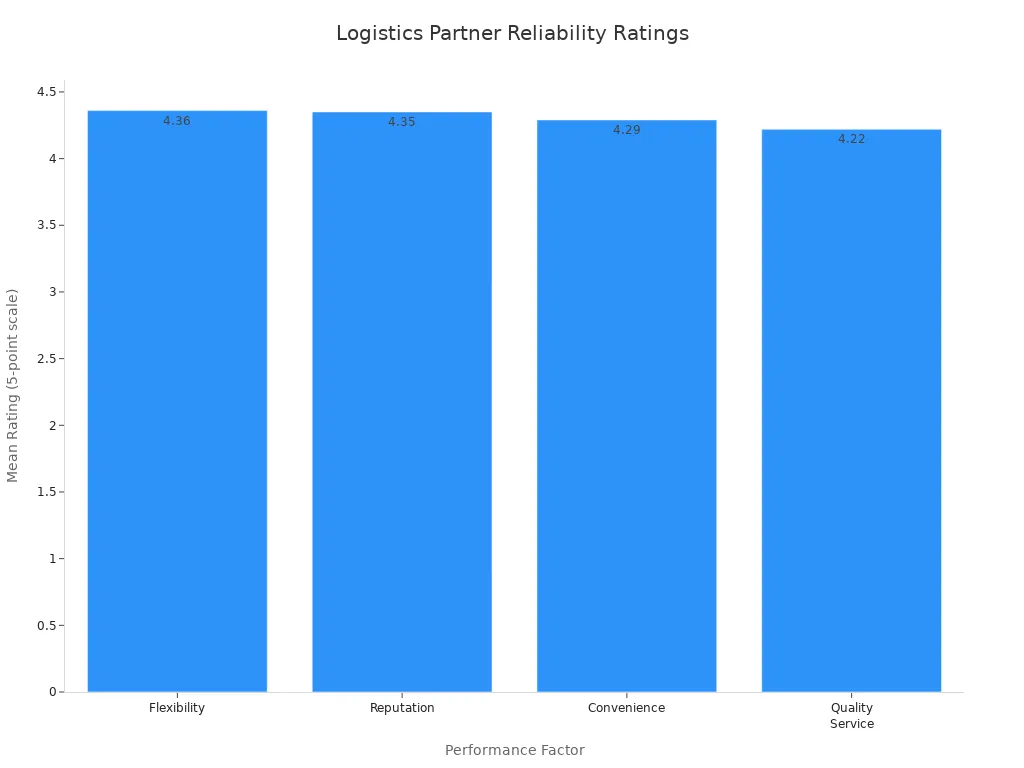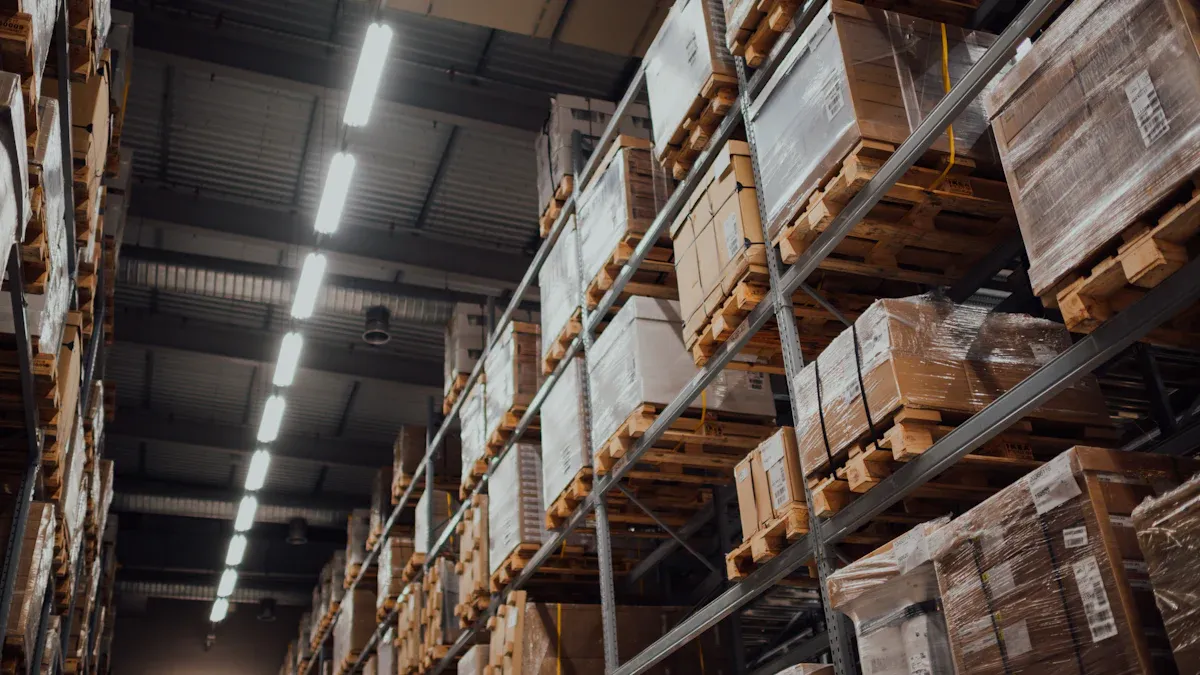How to Choose a Reliable Logistics Partner Like PGL

You want your products to arrive on time and in perfect condition. When you trust a logistics partner, reliability becomes everything. If you pick the wrong company, you could face lost shipments, unhappy customers, or extra costs. A reliable partner helps your business grow and keeps your stress low. If you wonder how to choose a reliable logistics partner pgl, you should look for trust, strong service, and proven results.
Key Takeaways
Identify your logistics needs before choosing a partner. Understand your shipping volume and any special requirements to find the best fit.
Look for a logistics partner with a strong reputation and proven experience. Check reviews and ask for references to ensure reliability.
Choose a partner that uses modern technology. Features like real-time tracking and automation can improve efficiency and customer satisfaction.
Ensure the logistics partner can scale with your business. Flexibility in services and capacity is crucial as your needs change.
Review contracts carefully. Pay attention to service level agreements, pricing, and liability clauses to protect your business.
Logistics Needs

Before you pick a logistics partner, you need to know what your business really needs. This step helps you avoid surprises and makes it easier to find the right fit.
Shipping Volume
Your shipping volume can change a lot during the year. Maybe you sell more during the holidays or have slow months in the summer. You want a logistics partner who can handle these ups and downs without missing a beat. Take a look at this table to see what factors matter most when thinking about shipping volume:
Factor | Description |
|---|---|
Managing Seasonal Fluctuations | Find a partner who can handle busy seasons and slow periods. |
Customizable Solutions | Look for flexible shipping and delivery options. |
Warehousing and Distribution | Check if they have warehouses in the right places to speed up delivery. |
Inventory Management | Make sure they use real-time tracking and smart inventory systems. |
Distribution Networks | See if they can deliver your products quickly and on time. |
Technology Adoption and Innovation | Choose a partner who uses the latest tech to make things easier. |
Sustainability and Environmental Impact | Ask about green practices to help your brand and the planet. |
Special Requirements
Some products need extra care. You might ship items that are big, heavy, or even dangerous. Here are some common special requirements you should think about:
Hazardous materials (HAZMAT) need special handling and storage.
Lithium batteries require temperature control and must follow strict rules.
Oversized equipment needs special trucks and storage because of its size and weight.
If you have any of these needs, make sure your logistics partner has the right experience and tools.
Service Levels
Service levels can make or break your customer’s experience. Many customers want their orders in two days or less. Fast and reliable delivery keeps people happy and coming back. Here’s a quick look at why service levels matter:
Metric | Value |
|---|---|
Customers demanding goods within 2 days | 55% |
Timely deliveries boost customer satisfaction and loyalty.
High on-time rates mean fewer complaints and better reviews.
Good service levels often lead to more repeat purchases.
Tip: When you know your logistics needs, you can focus on how to choose a reliable logistics partner pgl who matches your business goals and keeps your customers smiling.
How to Choose a Reliable Logistics Partner PGL
Choosing the right logistics partner can feel overwhelming. You want a company that delivers on promises and helps your business grow. Let’s break down what you should look for, using PGL as a great example.
Reputation
You want a partner with a strong reputation. Start by checking what people say about them. Ask current and past clients about their experiences. Look at how the company stands in the community. A good reputation means you can trust them with your business.
Criteria | Description |
|---|---|
Reliability | Ability to meet delivery timelines and handle goods properly. |
Customer Service | Quality of support and communication with clients. |
Adaptability | Flexibility in adjusting to changing business needs. |
Safety Record | History of handling goods without damage and maintaining safety standards. |
Tip: Visit the logistics company’s site if you can. Seeing their operations up close helps you know if they fit your needs.
Experience
Experience matters a lot in logistics. A partner with years in the business knows how to handle surprises. They have seen busy seasons, new rules, and tough deliveries. PGL has a long track record in many industries. When you ask how to choose a reliable logistics partner pgl, always check their history and see if they have handled jobs like yours.
Technology
Modern logistics runs on technology. You need a partner who uses the latest tools. Look for features like real-time tracking, warehouse automation, and digital control towers. These tools help you see where your shipments are at any time. PGL uses advanced systems to keep everything running smoothly.
Digital control towers
Warehouse robotics
Real-time tracking systems
Dynamic price discovery
Did you know? Companies using these technologies can save millions in transportation costs over a few years.
Coverage
Think about where your products need to go. A good logistics partner covers all your key markets. PGL has a wide network, so your goods reach customers fast. Local expertise also helps with last-mile delivery and following local rules.
Strong geographic reach
Local market knowledge
Flexible delivery options
Data Security
Your business data must stay safe. Check if your logistics partner has the right certifications. PGL holds top certifications for quality and security, so your information stays protected.
Certification Type | Description |
|---|---|
ISO 9001:2015 | Quality management system certification |
CTPAT Partner | Customs-Trade Partnership Against Terrorism |
ITAR Compliant | International Traffic in Arms Regulations |
SmartWay Transport Partner | Registered with SmartWay® Transport Partnership |
SOC 2 Type 1 Certified | Data security and privacy certification |
FDA, TSA, DOT, US-CBP, FMC Compliance | Regulatory compliance certifications |
Customer Service
Great customer service makes your life easier. You want quick answers and helpful support. PGL stands out for its friendly and responsive team. Check these key metrics when you compare partners:
Metric | Description |
|---|---|
Inventory accuracy | Are inventory records correct? |
On-time delivery | Do shipments arrive when promised? |
Order accuracy | Are orders filled correctly? |
Return processing time | How fast are returns handled? |
Cost per unit shipped | Is shipping cost-effective? |
On-time delivery and order accuracy show how well a company performs.
Fast return processing keeps customers happy.
Scalability
Your business will grow and change. You need a logistics partner who can keep up. PGL offers flexible solutions that scale with your needs. They can add more space, trucks, or staff when you need them.
Scalable warehousing
Flexible transportation
Ability to handle busy seasons or new markets
Note: 3PL providers like PGL help you adjust quickly, so you never miss an opportunity.
Financial Stability
A stable partner means fewer surprises. Check their financial health before you sign up. Look at cash flow, operating costs, and profit margins. PGL’s strong finances mean they can invest in new tech and handle tough times.
Description | |
|---|---|
Cash Flow | Keeps operations running smoothly. |
Operating Costs | Shows where they spend money. |
Revenue per Mile | Measures income from each route. |
Accounts Receivable Turnover | Tracks how fast they get paid. |
Net Profit Margin | Shows overall profitability. |
Return on Assets | Measures how well they use their equipment. |
Fuel Efficiency Metrics | Tracks fuel costs and savings. |
Customer Feedback
Listen to what other customers say. Read reviews and ask for references. PGL scores high on flexibility, reputation, and service quality. Here’s how they compare to industry benchmarks:
Operational Performance Factor | Mean Rating (5-point Likert scale) | Interpretation |
|---|---|---|
Flexibility | 4.36 | Very Satisfied |
Reputation | 4.35 | Very Satisfied |
Convenience | 4.29 | Very Satisfied |
Quality Service | 4.22 | Very Satisfied |

Call a few of their clients. Ask about their experience. This step gives you real insight into how to choose a reliable logistics partner pgl.
Full Capabilities
You want a partner who can do it all. PGL offers personalized service, advanced technology, and special handling for sensitive goods. They have managed huge projects, like distributing millions of COVID testing kits. Their team can design custom solutions for your business.
Personalized logistics plans
Advanced warehouse management systems
Special handling for unique products
Ability to manage large-scale projects
When you ask how to choose a reliable logistics partner pgl, look for a company with a proven record, strong technology, and the ability to grow with you. PGL checks all these boxes, making them a top choice for businesses that want peace of mind.
Evaluation Steps

Research Partners
Start by making a list of possible logistics partners. You want to know who stands out and who fits your needs. Here’s a simple way to organize your research:
Check how long each company has worked in logistics. More years often means more experience.
Look at their services. Do they offer warehousing, transportation, and distribution?
See what technology they use. Real-time tracking and data analytics help you stay informed.
Review their pricing. Make sure costs are clear and there are no hidden fees.
Test their customer service. Try calling or emailing to see how fast they respond.
Ask if they can grow with your business. Scalability matters when your shipping volume changes.
Make sure they follow all rules and regulations.
Tip: Missing steps or poor planning can lead to mistakes. Organized research helps you avoid common problems like bad IT systems or poor tracking tools.
Compare Proposals
Once you have a shortlist, ask each partner for a proposal. Don’t just look at price. Compare what each company offers:
Blockchain technology for secure and clear transactions.
Predictive analytics to spot problems before they happen.
Artificial intelligence for smarter shipping and maintenance.
Automated guided vehicles to reduce mistakes.
Collaborative platforms for easy communication.
You want a partner who uses smart tools and offers real value.
Check References
References tell you what real customers think. Contact businesses like yours and ask about:
Damage rates and how quickly problems get fixed.
Service quality and customer satisfaction.
Continuous improvement and reliability.
Customer reviews and direct calls give you honest feedback. High ratings mean the company delivers fast, accurate, and responsive service.
Review Contracts
Before you sign, read the contract carefully. Look for these key clauses:
Purpose | Common Issues | |
|---|---|---|
Scope of Services | Lists what the company will do | Vague terms cause disputes |
Pricing & Payment | Shows costs and payment schedules | Hidden fees and changing prices |
Liability & Risk | Explains who pays for losses or damages | No clear insurance policies |
SLAs | Sets service and delivery standards | No penalties for poor service |
Termination & Renewal | Explains how to end or renew the deal | No flexibility for growth |
A good contract protects you and sets clear rules. Make sure the statement of work lists all services, timelines, and responsibilities. Service level agreements should set high standards for performance.
If you want to know how to choose a reliable logistics partner pgl, careful contract review is a must. It keeps your business safe and sets you up for success.
Decision Tips
Weigh Options
You have a shortlist of logistics partners. Now, you need to compare them side by side. Use a simple framework to help you see which company fits your needs best. Look at their infrastructure, financial health, daily operations, and technology. Here’s a table to guide your decision:
Decision Criteria | Description |
|---|---|
Infrastructure Development | Check their warehouses and transport systems. Can they grow with you? |
Economic Performance in Logistics | Review their costs and profits. Are they stable and efficient? |
Operational Management | See how they handle daily tasks like routing and scheduling. |
Smart Innovation Technological | Ask about their use of IoT and big data. Do they use smart tools to improve service? |
Tip: PGL stands out for strong infrastructure, smart technology, and deep experience in building supply chains. Their purchasing power can help you save money, even if your shipment volume is low.
Negotiate Terms
You want a fair deal that protects your business. Good negotiation starts with clear communication. Make sure you understand your needs before you talk numbers. Here are some strategies to help you get the best terms:
Outline service level agreements (SLAs) so everyone knows what to expect.
Balance cost savings with quality and reliability.
Set measurable performance indicators for delivery and accuracy.
Build long-term relationships for better support and customization.
Use value engineering to cut costs without losing quality.
Spell out SLAs and expectations.
Discuss the scope of services to avoid surprises.
Add clear termination clauses for contract breaches.
Remember, PGL’s professional evaluation helps you streamline your transportation department and maximize efficiency.
Plan Onboarding
A smooth transition makes all the difference. Start with a kickoff meeting to set goals and timelines. Share accurate product data and make sure your systems work together. Here’s a checklist for onboarding:
Create a common project plan with your partner.
Identify any barriers that could slow things down.
Align on key performance indicators (KPIs).
Schedule regular business reviews to track progress.
Confirm technology integration to avoid bottlenecks.
Set clear expectations for order volumes and shipping needs.
“You have to have a very robust and engaged change management strategy. There will always be some dissatisfaction along the way—and a change management strategy will shrink the time you’re in that valley.” — Bob Daymon, Head of Client Services, Uber Freight
When you follow these steps, you set yourself up for a successful partnership with a reliable provider like PGL. You get peace of mind and more time to focus on growing your business.
You want to make smart choices for your business. When you ask how to choose a reliable logistics partner pgl, focus on these important criteria:
Industry experience
Proven track record
Scalability and flexibility
Technology and innovation
Strong network and infrastructure
Cost-effectiveness
Reliability
Commitment to sustainability
Customer service
Reputation
Picking a partner like PGL gives you peace of mind. You get better service, more growth, and fewer worries. Use this process to feel confident every step of the way.
FAQ
What makes a logistics partner reliable?
You want a partner who delivers on time, communicates clearly, and handles your goods with care. Look for strong reviews, proven experience, and advanced technology. These signs show you can trust them with your shipments.
How do I know if a logistics company can handle my special requirements?
Ask about their experience with your type of products. Request examples or case studies. You can also check if they have the right equipment and certifications for your needs.
Why does technology matter in logistics?
Technology gives you real-time tracking, faster problem-solving, and better planning. You see where your shipments are at any moment. This helps you keep customers happy and avoid surprises.
Can a logistics partner help my business grow?
Absolutely! A good partner scales with you. They offer flexible solutions, more storage, and extra trucks when you need them. You can focus on your business while they handle the logistics.
See Also
Top Reasons to Select PGL for Panama LCL Shipping
PGL's Proficiency in Global Logistics and Supply Chains
Reliable Warehouse and Fulfillment Solutions Offered by PGL
Dependable Warehouse and Fulfillment Services by PGL in CA and WA
